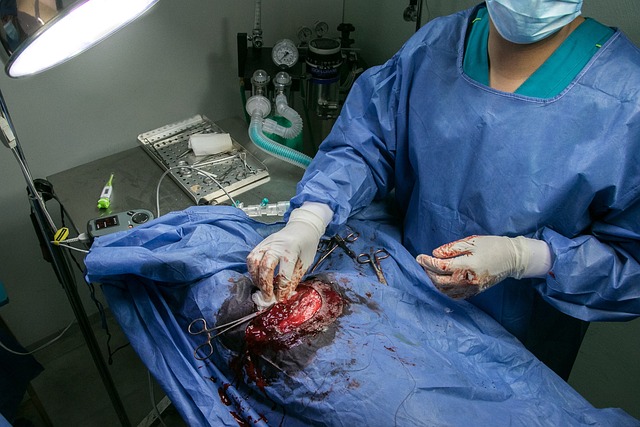Private Cataract Surgery in the UK 2025: Typical Costs, Influencing Factors and Speed of Treatment
Over 400,000 cataract operations occur annually in the UK, but many patients face long NHS waits. Understanding private cataract surgery costs and the factors that influence them helps you weigh faster treatment options. This article outlines typical 2025 private prices, cost drivers, and benefits of private care.

Understanding Cataract Surgery and the Benefits of Private Care
Cataracts occur when the natural lens of the eye becomes cloudy, affecting vision clarity and quality. Surgery involves removing the clouded lens and replacing it with an artificial intraocular lens (IOL). Private cataract surgery offers several advantages over NHS treatment, including significantly reduced waiting times, access to premium lens options, and more personalised care throughout the treatment process.
Private facilities typically provide same-day discharge, dedicated nursing care, and follow-up appointments scheduled at convenient times. Patients often benefit from consultation with experienced consultant ophthalmologists who perform the surgery themselves, rather than trainee surgeons who may conduct NHS procedures under supervision.
Private Cataract Surgery Costs in the UK (2025) — What to Expect
The cost of private cataract surgery in the UK varies considerably depending on several factors. Standard monofocal lens surgery typically ranges from £2,500 to £4,000 per eye, while premium multifocal or toric lenses can cost between £3,500 and £6,000 per eye. These prices generally include pre-operative assessments, surgery, standard post-operative care, and follow-up appointments.
Location significantly impacts pricing, with London-based clinics often charging premium rates compared to regional centres. The surgeon’s experience and reputation, facility standards, and included services all contribute to the final cost. Some providers offer package deals for both eyes, which can provide modest savings compared to individual eye treatments.
Main Factors Affecting Private Cataract Surgery Pricing
Several key elements influence the total cost of private cataract surgery. The type of intraocular lens selected represents one of the most significant cost variables. Standard monofocal lenses correct vision at one distance, while premium multifocal lenses can address both near and distance vision, reducing dependence on glasses post-surgery.
Surgical technique also affects pricing. Traditional phacoemulsification remains the standard approach, while laser-assisted cataract surgery using femtosecond lasers commands higher fees due to advanced technology costs. The clinic’s location, surgeon’s expertise, anaesthesia type, and additional services such as premium pre-operative testing or enhanced post-operative care packages all contribute to price variations.
Comparing NHS and Private Cataract Surgery: Key Considerations
NHS cataract surgery provides excellent clinical outcomes but comes with notable waiting times, often extending 12-18 months from initial referral to treatment. Private surgery typically offers treatment within 2-4 weeks of consultation, making it attractive for patients whose vision significantly impacts daily activities or work requirements.
NHS treatment includes standard monofocal lenses and essential follow-up care, while private options provide access to premium lens technologies and more comprehensive aftercare. However, NHS surgery maintains the same safety standards and surgical techniques as private treatment, with outcomes generally comparable between sectors.
Cost represents the primary barrier to private treatment, as NHS surgery remains free at the point of delivery for eligible patients. Private insurance may cover cataract surgery if deemed medically necessary, though many policies exclude routine procedures or impose waiting periods.
Additional Benefits of Choosing Private Cataract Surgery
Private cataract surgery offers enhanced comfort and convenience throughout the treatment journey. Patients typically receive dedicated consultation time with their surgeon, comprehensive pre-operative assessments using advanced diagnostic equipment, and flexible scheduling to accommodate personal preferences.
| Provider | Location | Standard Surgery Cost | Premium Lens Options | Additional Services |
|---|---|---|---|---|
| Moorfields Private | London/Multiple | £3,200-£4,500 | £4,500-£6,000 | Comprehensive aftercare |
| Optical Express | Nationwide | £2,695-£3,995 | £3,995-£5,495 | Free lifetime aftercare |
| Optimax | Multiple locations | £2,795-£3,795 | £3,995-£5,295 | 25-year guarantee |
| Spire Healthcare | Nationwide | £3,000-£4,200 | £4,200-£5,800 | Premium facilities |
Prices, rates, or cost estimates mentioned in this article are based on the latest available information but may change over time. Independent research is advised before making financial decisions.
Treatment speed represents perhaps the most compelling advantage of private surgery. While NHS patients may experience progressive vision deterioration during extended waiting periods, private patients can address their cataracts promptly, minimising impact on quality of life, work performance, and independence.
Private facilities often provide superior amenities, including comfortable recovery areas, parking facilities, and streamlined administrative processes. Many private providers also offer comprehensive warranty programs and ongoing support services that extend beyond standard NHS provision.
The decision between NHS and private cataract surgery ultimately depends on individual circumstances, financial capacity, and personal priorities. While NHS treatment delivers excellent clinical outcomes, private surgery offers speed, convenience, and enhanced patient experience for those able to invest in their eye care. Patients should carefully consider their visual needs, lifestyle requirements, and budget constraints when evaluating treatment options, ensuring they make informed decisions aligned with their personal circumstances.
This article is for informational purposes only and should not be considered medical advice. Please consult a qualified healthcare professional for personalized guidance and treatment.




